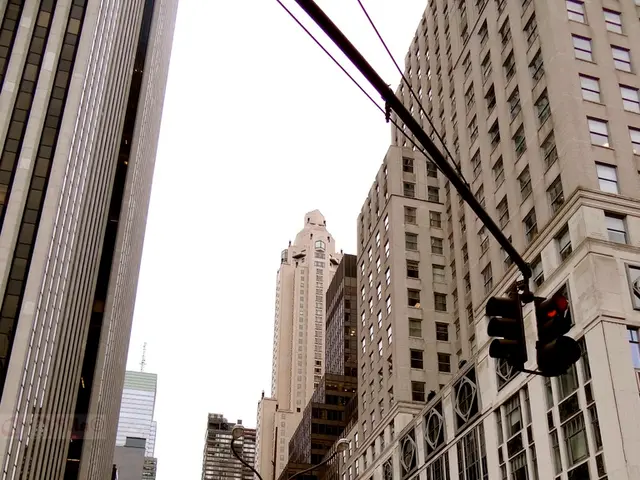Navigating the Coal Phaseout: Strategies and Solutions
Accelerated Coal Phase-Out in the Rhine Region: Navigating Environmental, Economic, and Social Challenges
The Rhine region, known for its rich industrial heritage, is bracing itself for a significant transformation as the accelerated coal phase-out looms by 2030. This move, aimed at mitigating climate change, presents both opportunities and challenges for the region's people, companies, and environment.
Environmental Impacts
The phase-out of coal will lead to a substantial reduction in greenhouse gas emissions, a crucial step in combating climate change. Increasingly, Germany, including the Rhine region, is experiencing the harsh realities of climate change, with heatwaves, floods, and droughts becoming more frequent[1]. The German government's climate goals include retiring coal plants by 2030 to lower emissions by 55% by then and achieve net zero by 2050[2]. This transition supports cleaner air and reduces coal-related pollution hazards.
Economic Impacts
The shift towards renewable energy sources, already underway, offers advantages in the form of repowering projects like wind turbine installations that are more efficient, require less land, and offer economic advantages for communities[2]. The Rhine region, particularly the Rheinisches Revier, is investing in clean technology hubs such as Brainergy Park, which fosters green innovation, high-tech industries, and STEM talent utilization[4].
However, the transition phase may involve costs related to infrastructure changes and potential job shifts. The economic disruption caused by the coal phase-out is not entirely foreseeable.
Social Impacts
The social dimension involves workforce transformation as coal jobs decline. The Rhine region is actively reinventing itself as a center for climate-friendly innovation, supported by a strong labor pool in engineering and technology[4]. This approach aims to provide new employment opportunities in renewable energy, smart mobility, and energy technology sectors, mitigating social risks tied to coal phase-out.
Navigating the Transition
The exit from coal-fired power generation disrupts the economic balance. The federal government aspires to advance the coal phase-out to 2030, and the state and federal governments are expected to provide a clear and binding statement in response.
A notable development is RWE's plan to build gas-fired power plants[3]. However, gas is currently scarce and expensive, posing challenges to this strategy. Furthermore, the construction of gas-fired power plants may lead to the cessation of gypsum production, a byproduct of coal power stations.
The Rhine region, with its resilient spirit and innovative approach, is poised to navigate these challenges and emerge as a beacon of sustainable development in the heart of Germany.
[1] Climate change impacts in Germany [2] Germany's climate goals [3] RWE's plans for gas-fired power plants [4] Brainergy Park
Read also:
- Coastal men's disruptions of dolphin gatherings might lead to jail sentences
- Investment decisions by UK pension funds often disregard impact reports, according to a recent study
- Thriving New Species Discovered in Cambodia's Endangered Karst Regions
- Exploring Ecological and Workforce Struggles: The Writer Portraying the Woes of Industrialized England was...








